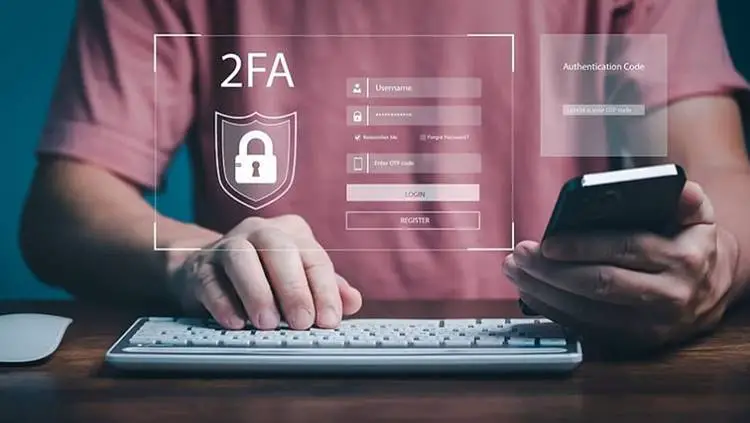Are you concerned about your online privacy and wondering how to stay anonymous online? In today’s digital age, it’s more important than ever before to take steps to protect your online identity and keep your personal information safe. Here are 15 effective tips to stay anonymous and untraceable on the internet:
15 effective tips on how to stay anonymous online
1. Use a virtual private network (VPN)
There are many benefits of using a VPN. A VPN encrypts your internet traffic and hides your IP address, making it much harder for anyone to track your online activity. Look for a reputable VPN provider that does not keep logs of your activity.
Read also: How to Use VPN on My Home Network
2. Use the Tor browser
The Tor browser is a free and open-source browser that allows you to browse the web anonymously by routing your traffic through a network of servers. This can help you stay anonymous and untraceable online, but keep in mind that it may slow down your internet speed. It’s also worth noting that over the years the uses of the Onion network have been changed through legislation concerning online privacy and safety. It can be beneficial to check this longread covering everything about eIDAS 2.0, this can help you to understand what online safety measures are being rolled out in the future and you can take action accordingly.
3. Use a secure email provider
Instead of using popular email services like Gmail or Yahoo, use a secure email provider that values your privacy and does not track your activity. Some examples include ProtonMail and Tutanota.
4. Use encrypted messaging apps
Apps like Signal and Telegram offer end-to-end encryption, ensuring that your messages are kept private and secure. Avoid messaging apps that do not offer encryption, as your messages can be intercepted and read by third parties.
5. Use a password manager
A password manager can help you create strong, unique passwords for all your online accounts, making it harder for anyone to access your data. Look for a password manager that uses strong encryption and does not store your passwords in the cloud.
6. Use two-factor authentication (2FA)
2FA adds an extra layer of security to your accounts by requiring you to enter a code in addition to your password. This can prevent hackers from accessing your accounts even if they have your password.
7. Use a privacy-focused search engine
Instead of using Google, use a privacy-focused search engine like DuckDuckGo, which does not track your activity or collect your personal information. This can help you stay anonymous online and prevent your search history from being tracked.
8. Use anonymous payment methods
Use cryptocurrencies or anonymous prepaid cards to make online purchases, rather than using your credit card or bank account. This can help you stay anonymous and protect your financial information.
9. Disable location tracking
Turn off location tracking on your devices to prevent apps and websites from tracking your physical location. This can help you stay anonymous and protect your privacy when browsing the web.
10. Use a virtual machine
A virtual machine can create a secure environment on your computer, isolating your online activity from the rest of your device. This can help you stay anonymous and protect your data from malware and other online threats.
11. Use a disposable email address
Use a disposable email address for online signups and registrations to avoid receiving spam or any types of email threats, or having your personal information exposed. Services like TempMail and Guerrilla Mail can help you create disposable email addresses.
12. Use a different username
Use a different username for each of your online accounts to prevent your activity from being tracked across multiple platforms. This can make it harder for third parties to link your online activity together.
13. Avoid public Wi-Fi
Public Wi-Fi networks are often unsecured, making it easy for hackers to intercept your internet traffic and steal your data. Use a VPN or mobile hotspot instead to stay anonymous and protect your data.
14. Use a browser extension
Use browser extensions like HTTPS Everywhere and Privacy Badger to enhance your online privacy and security. These extensions can help you stay anonymous and protect your data from online threats.
15. Use a privacy-focused operating system
Use a privacy-focused operating system like Tails or QubesOS that can help you stay anonymous and untraceable online. These operating systems are designed to protect your privacy by isolating your online activity from the rest of your device and are highly recommended for sensitive online activities.
Read also: How to Call Anonymously from Your Phone
How to stay anonymous online: conclusion
Staying anonymous and untraceable on the internet is possible with the right tools and precautions. By implementing the 15 strategies outlined in this article, you can protect your online privacy, keep your personal information safe, and browse the web with confidence. Remember, the internet can be a dangerous place, but with a little bit of effort, you can stay anonymous and protect your data from prying eyes.
To recap, here is how to stay anonymous online:
- Use a virtual private network (VPN)
- Use the Tor browser
- Use a secure email provider
- Use encrypted messaging apps
- Use a password manager
- Use two-factor authentication (2FA)
- Use a privacy-focused search engine
- Use anonymous payment methods
- Disable location tracking
- Use a virtual machine
- Use a disposable email address
- Use a different username
- Avoid public Wi-Fi
- Use a browser extension
- Use a privacy-focused operating system
[Images via: Google Images]


